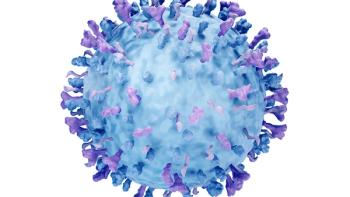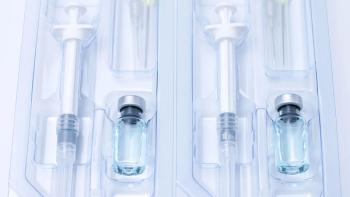
- BioPharm International-04-02-2009
- Volume 2009 Supplement
- Issue 3
Batch Release Testing: A Geographical Driver For Outsourcing in Europe
A good understanding of European regulations governing batch release testing will facilitate your collaboration with a contract laboratory.
Abstract
European regulations require that batch release testing be conducted in Europe for products marketed in the territory. Therefore, it is important for companies outside Europe to understand how these requirements affect the outsourcing of batch release testing, including the function of mutual recognition agreements, the role of the Qualified Person, and the extent to which these requirements apply to clinical trial materials.
One of the many drivers for a company to consider outsourcing is geography—the need to have a particular piece of work conducted within a specific country or regulatory region.
(Getty images/composite)
Companies may first encounter this need if there are potential patent issues surrounding the products they are developing. In some countries, most notably the US, developmental work is subject to patent restrictions that in other countries would only apply when the new manufacturer sought material gain, i.e., when it is ready to market a product. A new manufacturer of a follow-on product would thus wish to conduct any work, outsourced or otherwise, in a country where it would be free from potential suits.
Later in product development, it may be necessary to conduct clinical trials in specific patient groups or ethnicities, which may be accomplished most easily by conducting some of the trials in particular countries. It may also be necessary to conduct clinical trials in a particular country before marketing authorization will be granted in that country.
The final stage where the location of the work can become relevant is in release testing, the quality control testing of each batch of finished product. This situation is particularly relevant for biological products for which a single manufacturing site is normally used for global supply, whereas for small-molecule products, multiple manufacturing plants located in local markets are more common. In the European Union (EU), there is a regulatory requirement that each batch of a finished marketed product be tested in the EU against the approved product specification. There is no requirement for the product to be manufactured in the region, but non-EU manufacturing sites are subject to inspection by the EU authorities. For companies with no testing facilities in the region, the EU marketing of their products will thus require outsourcing to a EU-based facility. The purpose of this article is to review this requirement and provide guidance to manufacturing companies that need to outsource this testing.
Legislative Background
When considering Europe as a market for a pharmaceutical product, one first must define what is meant by Europe. The geographical region and regulatory groupings do not match; whilst the former is fixed, the later is subject to extensions as the political situation changes.
The top half of Table 1 lists the countries that are currently members of the EU. All legislation passed at the EU level applies to these countries. For pharmaceutical products, the regulations are administered by the European Medicines Agency (EMEA). EU legislation is issued in the form of directives from the European Commission (EC) to all member states (countries). Then each country must implement the directives through its own legal framework within a given time period.
Table 1. Countries of the EU and non-EU members of the European Economic Area
For pharmaceutical products, there are three main directives of relevance to testing requirements:
- Directive 2003/94/EC lays down the principles and guidelines for manufacturing practice for medicinal products for human use and investigational medicinal products for human use.
- Directive 2001/83/EC is the Community code relating to medicinal products for human use and sets out the requirements and procedures for obtaining marketing authorization.
- Directive 2004/27/EC amends Directive 2001/83/EC.
Directive 2003/94/EC is supplemented by "The Rules Governing Medicinal Products in the EU, Volume 4, EU Guidelines to Good Manufacturing Practice."
Point 39 of Directive 2004/27/EC replaces the text of article 51(b) of the original medicinal products for human use Directive with the following text:
In the case of medicinal products coming from third countries, irrespective of whether the product has been manufactured in the Community, that each production batch has undergone in a Member State a full qualitative analysis, a quantitative analysis of at least all the active substances and all the other tests or checks necessary to ensure the quality of the medicinal products in accordance with the requirements of the marketing authorisation.1 [Emphasis added]
It is this statement from the directives that requires that a company wishing to market its product within the EU have testing conducted on every batch of that product in one of the 27 EU member countries.
Other Locations for Testing: Mutual Recognition Agreements
In addition to the EU, there are other political and economic groupings in the geographical region of Europe. The directives and the decisions of the EMEA are also agreed to by the European Economic Area (EEA); which comprises the EU member states plus the three additional countries listed in the bottom half of Table 1. Testing conducted in these three countries is also acceptable for product release in the EU.
A third mechanism exists to allow testing conducted outside the EU to be accepted: mutual recognition agreements (MRAs) covering good manufacturing practices (GMPs) for the product under consideration. The current status of EU MRAs covering GMPs is shown in Table 2.
Table 2. EU good manufacturing practice mutual recognition agreements (MRAs)
Thus, if a medicinal product is to be marketed in Europe (i.e., the geographical region comprising the 27 EU member states plus Iceland, Liechtenstein, Norway, and Switzerland, it must be tested against the EMEA-approved specification in one of the 33 countries with fully operational agreements (if it is a blood-derived biological product) or 34 countries (if it is not a blood-derived biological). Biological products tested in Japan or any form of pharmaceutical product tested in the US must be retested.
Testing conducted in Europe is accepted in the US, provided the testing facility has been approved by the US FDA. Many companies thus consider basing worldwide testing capabilities in Europe to minimize the need for repeat testing. For the rest of this article, the term Europe will be used to refer to the 27 EU member states, plus Iceland, Liechtenstein, Norway, and Switzerland.
Outsourcing Batch Release Testing
The provisions of article 20(b) of Directive 2001/83/EC as amended by point 18 of Directive 2004/27/EC allow the batch testing noted above to be contracted out to third parties provided the laboratories have been verified by the competent European authorities. Laboratories used for contract testing may be located in any European country or any country with a relevant MRA. European-based contract laboratories offer this service to virtual companies using contract manufacturing organizations based outside the region and to larger companies that do not possess the facilities or capacity to conduct the testing themselves. This is particularly true for biological products for which testing capacity is often located at the single site performing the worldwide manufacture, frequently in the US.
The facility that will conduct European batch release testing must be identified in the marketing authorization application (MAA) for the product. Therefore, if a company will need to outsource batch release testing, it must start the process of laboratory selection well in advance of the intended product launch. This selection process will follow the usual procedures for choosing an outsourcing partner, such as questionnaires, audits, and bid proposals, but also must include an assessment of the laboratory's accreditation under European GMPs and its suitability to handle the particular product type and its analytical tests.
Method Transfer
Once the laboratory has been selected, the process of method transfer can start. The methods and specifications that will be used by the contract laboratory will be those detailed in the MAA; the manufacturer must maintain control of these documents throughout the testing period because any change made by the contracting laboratory could require regulatory approval. The first stage of maintaining this control is for the manufacturer to add the contractor to its in-house circulation list for methods and specifications. Thus, if any revision to these documents is required by the manufacturer, the revised document is automatically circulated to the contractor to ensure that it is using the current version. The timeliness of this circulation is critical.
Next, the contractor must have established procedures for preventing any deviation from the methods as supplied. If local instructions are needed by the contractor, for example to allow alternate suppliers of reagents, these instructions must require approval by the manufacturer.
The method transfer process itself can take a considerable period, potentially longer than the MAA review if complex, specialized assays are necessary. Establishing banks of cells required for in vitro potency testing or the purchase and validation of specialized equipment and software can be particularly time consuming. The partnership between the contract laboratory and the manufacturer must ensure that sufficient staff are trained to perform all the batch tests within the required time period throughout the year. This can be accommodated in the initial transfer, or an initial pool of staff can be trained with cascade training as the marketed batches start being tested. Whatever the approach, cascade training will be required during the lifetime of batch testing; there will be staff turnover and hopefully increasing market share for the product will mean more batches will require testing. Managing this cascade training is essential to ensure that there is no drift in the application of the methods.
Technical and Quality Agreements
Technical and quality agreements are a requirement of European GMPs, but the documents often are used to cover business aspects of the relationship as well. Agreements between the parties must define delivery notice periods and turnaround times for reporting results. The lines of communication, particularly for unexpected or out-of-specification results and deviations, must be clearly stated.
The agreement must be long term in nature, to protect both parties. For the contractor, a substantial commitment in resources will be made for the routine testing of batches, and a standard termination clause may not give the contractor time to replace the work. For the manufacturer, changing the testing laboratory would require an amendment to the MAA, so the termination clause must allow sufficient time for the manufacturer to do that. It is thus important to reflect the nature of the business in the termination clause. The agreement also must have a built-in review mechanism and establish a maximum period between reviews.
Sampling and Distribution
In addition to requiring that batch release testing be conducted in Europe, the European GMPs require that the samples used for batch release testing be taken from the bulk shipment on European soil; sampling at the manufacturing site outside Europe and sending the samples separately to the testing laboratory is not permitted. The manufacturer must thus have a mechanism for sampling at the importation site or distribution center in Europe.
The importer must have a Qualified Person (QP) named on its authorization. The QP has a role defined in European GMPs and is ultimately responsible for releasing each batch of the product onto the market. The QP is required to review all manufacturing records and testing results for the batch to ensure the quality of the product. Provision must be made in any agreement with a contract testing laboratory to ensure full notification of the QP of not only the results but also of any problems with the conduct of the testing.
Batch Testing for Clinical Trials
Directive 2003/94/EC states in article 11:
When the (investigational medicinal) products are imported from third countries, analytical control shall not be mandatory.2
The conduct of clinical trials in Europe requires that investigational medicinal products (IMPs) be manufactured and labeled under conditions that meet the requirements of European GMPs, taking into account the developmental stage of the product. As with licensed products, the final release of the IMP for trials in Europe is conducted by a QP. In the clinical trial situation, however, the QP may have to conduct some assessments on a case-by-case basis because the manufacturing and distribution of the products is not as well established as would be the case for a marketed product. For example, although the regulations do not require batch release testing in Europe for an IMP that has been manufactured and tested in a third country, the QP may request that retesting be conducted to verify that there has been no harm to product quality during storage and distribution. European regulations recognize QPs for IMPs as a separate class of QP owing to the differences between the type of data and situations reviewed for IMPs and fully authorized marketed products.
Analytical methods for IMPs are not validated to the same extent as those for licensed products; the potential comparability of results from retesting to those generated by the manufacturer must be realistically assessed when considering the benefit of retesting.
The labeling of IMPs for early-phase clinical trials often is conducted at the trial site. If a product is shipped in an unlabeled form, the potential for mix-up is increased and a QP may well request limited testing (e.g., identity, protein concentration, or some other quantitative measure if multiple dose strengths are involved in the trial) on receipt at the labeling site.
Summary
The requirement of European legislation to have every batch of a marketed medicinal product tested on European soil creates the need for a company to have a testing laboratory in the European geographical region. If a company does not possess such facilities, the testing will have to be outsourced. Contract facilities in Europe recognize this need and provide the service to non-European based manufacturers through long-term agreements to the mutual benefit of both parties.
Niall Dinwoodie is head of product characterization, biopharmaceutical services, at Charles River, Edinburgh, UK, +44 1875 618313,
References
1. European Commission Directive 2004/27/EC, amending Directive 2001/83/EC on the Community code relating to medicinal products for human use. Point 39. 2004 Mar 31. Brussels, Belgium.
2. European Commission Directive 2003/94/EC, laying down the principles and guidelines of good manufacturing practice in respect of medicinal products for human use and investigational medicinal products for human use. Article 11. 2003 Oct 8.
Articles in this issue
almost 17 years ago
Strategies for Sourcing Animal-Origin Free Cell Culture Media Componentsalmost 17 years ago
Handling a Risky Business: How to Ensure Successful Technology Transferalmost 17 years ago
FDA's Recommendations to Industry Regarding Outsourcingalmost 17 years ago
Benefits of Effective Communication with a Contract Analytical LaboratoryNewsletter
Stay at the forefront of biopharmaceutical innovation—subscribe to BioPharm International for expert insights on drug development, manufacturing, compliance, and more.




